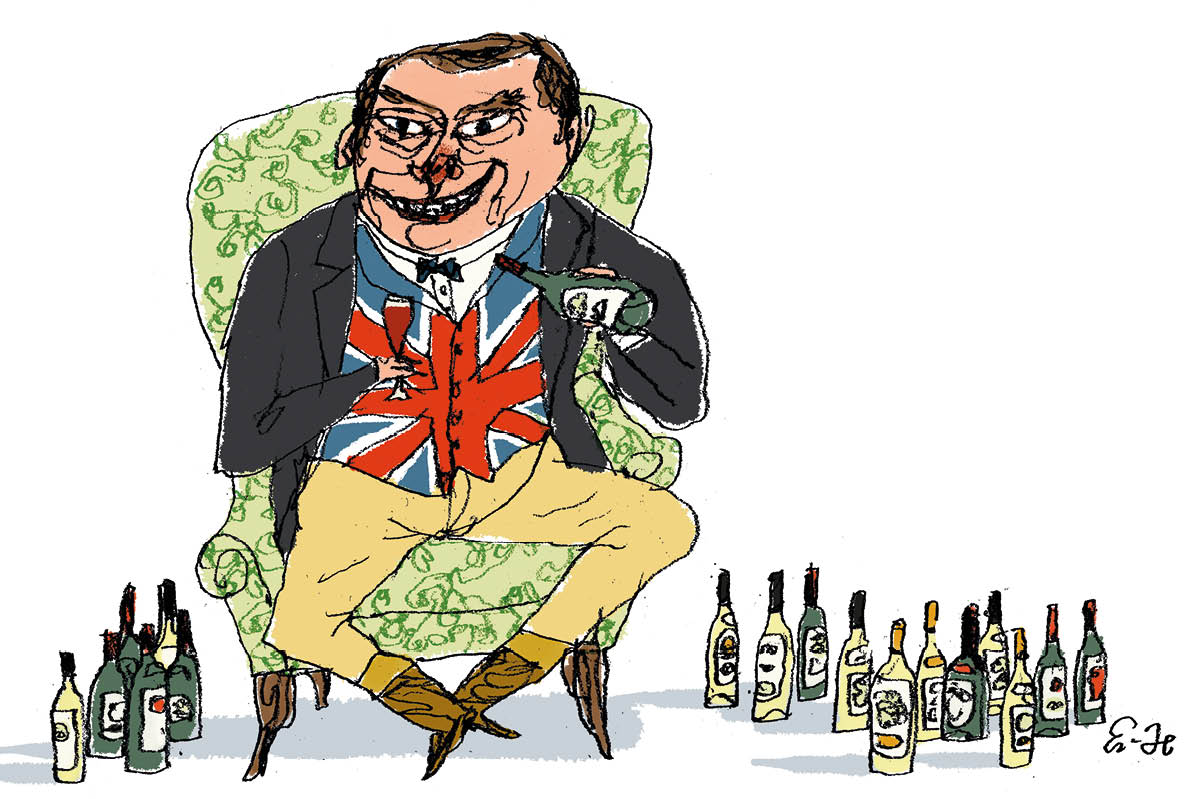Austria Loves Its Schnapps. Plus: Wine Trends 2024
Brews You Can Use

Schnapps and Austria are Like Wine and France
For centuries, farmers in the Tyrol region have mashed, fermented and distilled apples, plums, apricots and other fruit into schnapps, a strong spirit enjoyed most commonly as a digestif. It is sometimes infused with local herbs and plants, like fruit from the Austrian stone pine.
The more than four million tourists who flock to Tyrolean ski towns like Seefeld and Ischgl will find roughly 4,000 schnapps distilleries scattered throughout the region, often just a short hop from the slopes.
Maybe We'll Soon be Referring to "Wine and England"
England is the fastest growing wine region in the world. "The fairytale moment for English wine is here"
The recent ascent of English wine hasn’t just been good; it’s been peerless. The number of producers in the UK has increased exponentially, up 63 percent, from 128 producers in 2012, to 209 in 2022. The number of growers is up even more, by 118 percent, from 432 to 942 between 2012 and 2022. Vineyard planting is skyrocketing, too, up 74 percent between 2017 and 2022 — from 2,245 hectares to 3,928 hectares under vine, according to Wine Great Britain.
The rise of English wine
The recent ascent of English wine hasn’t just been good; it’s been peerless. The number of producers in the UK has increased exponentially

Will Liquor Laws Loosen in Saudi Arabia?
It's getting its first liquor store, albeit with severe limitations, and there's a blooming black market for the stuff that needs to be addressed somehow.
Saudi Arabia, an Islamic nation where drinking alcohol is strictly forbidden, is to get its first official liquor store. There’s just one catch: only foreign diplomats will be able to buy booze there.
The store in the capital Riyadh’s Diplomatic Quarter will remain off-limits to Muslims and, needless to say, ordinary Saudis. For a handful of lucky diplomats, the shop’s opening will spell an end to having to import alcohol via a diplomatic pouch or sealed official package. Yet the purchase of their favorite tipple won’t be straightforward. They will need to apply for clearance through a mobile app administered by Saudi officials. There will also be strict limits on how much they can buy at any one time, and customers will not be allowed to take pictures inside the store. Such is the sensitivity — and fear — surrounding the taboo topic of alcohol in the Islamic kingdom that few in an official position want to go on the record.
Is Saudi Arabia close to legalizing alcohol?
Saudi Arabia, an Islamic nation where drinking alcohol is strictly forbidden, is to get its first official liquor store. There’s just one

Something I Never Knew (from the same story)
Ironically, the Saudis only introduced the alcohol ban in 1952, following the murder of Cyril Ousman, the British vice-consul, who was shot dead by a Saudi royal at a party in 1951 after he refused the prince more drinks. It was a huge public embarrassment for the country’s rulers, laying bare the drinking culture in elite circles, somewhat at odds with their pious exhortations of religious observance.
Wine Trends: 2024
You’ll be drinking more sauvignon blanc.
Wine with bubbles will get even more popular.
More high-quality no- and low-alcohol wine.
Bending: pushing the boundaries of what can be called "wine."
More wineries and retailers will start offering unique perks for loyal customers based on how much they spend on wine.
AI will shape the wines you drink and how you taste it. Wineries have used artificial intelligence for years, especially when it comes to vineyard management—sensors gather real-time information on everything from light intensity to soil temperature. Robots are mowing, spraying, even ferrying pickers’ grapes to the winery.
The Six Biggest Ways Wine Will Change in 2024
Bubbly wine is rising in popularity as is the use of robots and AI in wineries.

A Non-Alcoholic Beer is the Hottest on the Market
I always figured a non-alcoholic beer that didn't really taste like beer would become popular, kinda like the market developing a whole new genre. When it comes to taste, I always figured beer is like poker: a favorite, but without the alcohol (gambling) component, there are tastier (more interesting) options. I guess I was wrong. People honestly like beer for the tasting experience itself.
Athletic has since become the country’s king of nonalcoholic beers, recently passing Heineken and Budweiser as the No. 1 brand by sales in U.S. grocery stores, according to an analysis of NielsenIQ data by consulting firm Bump Williams.


